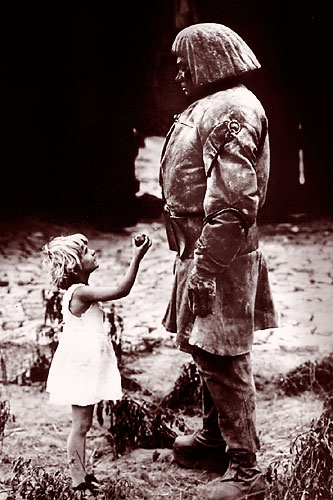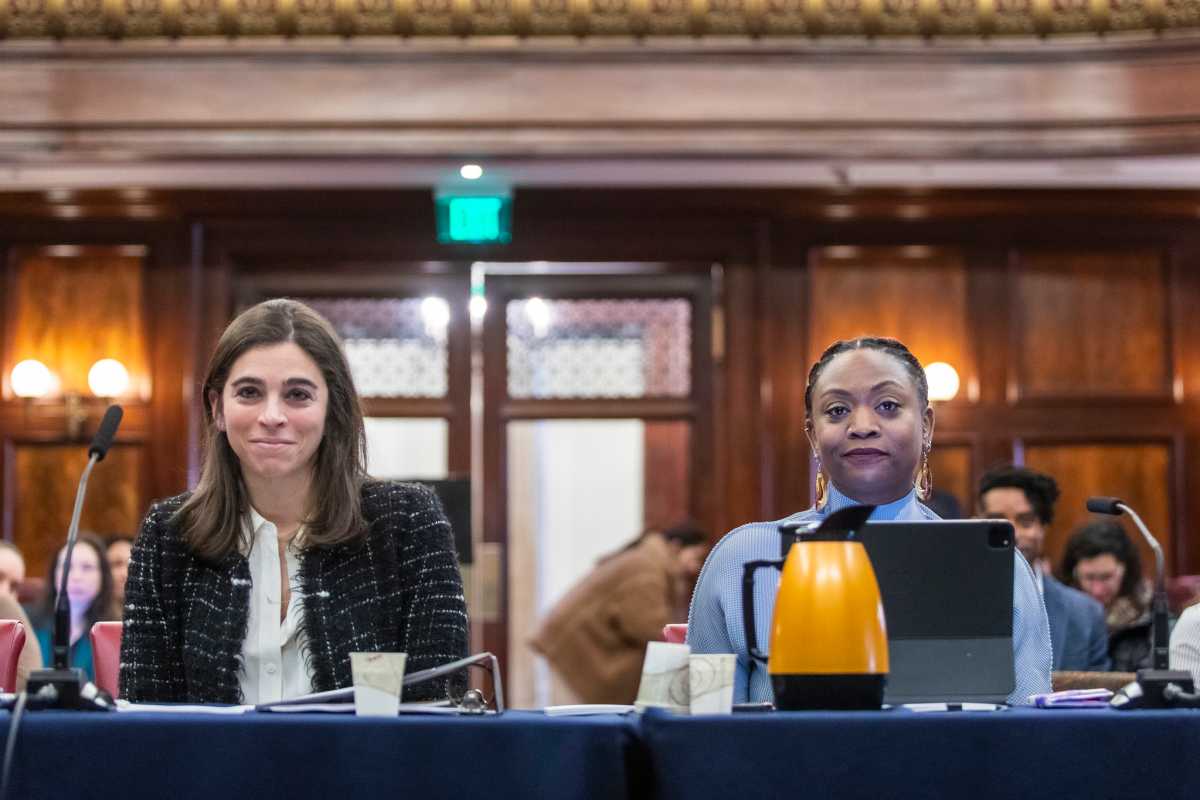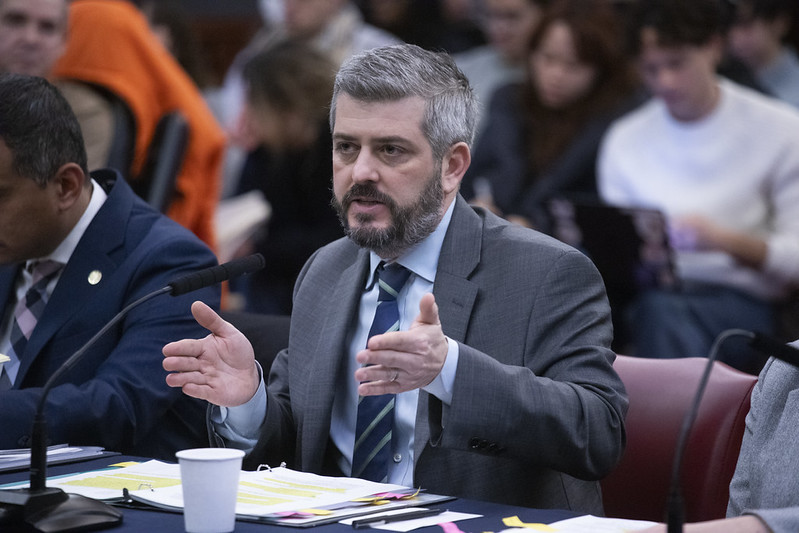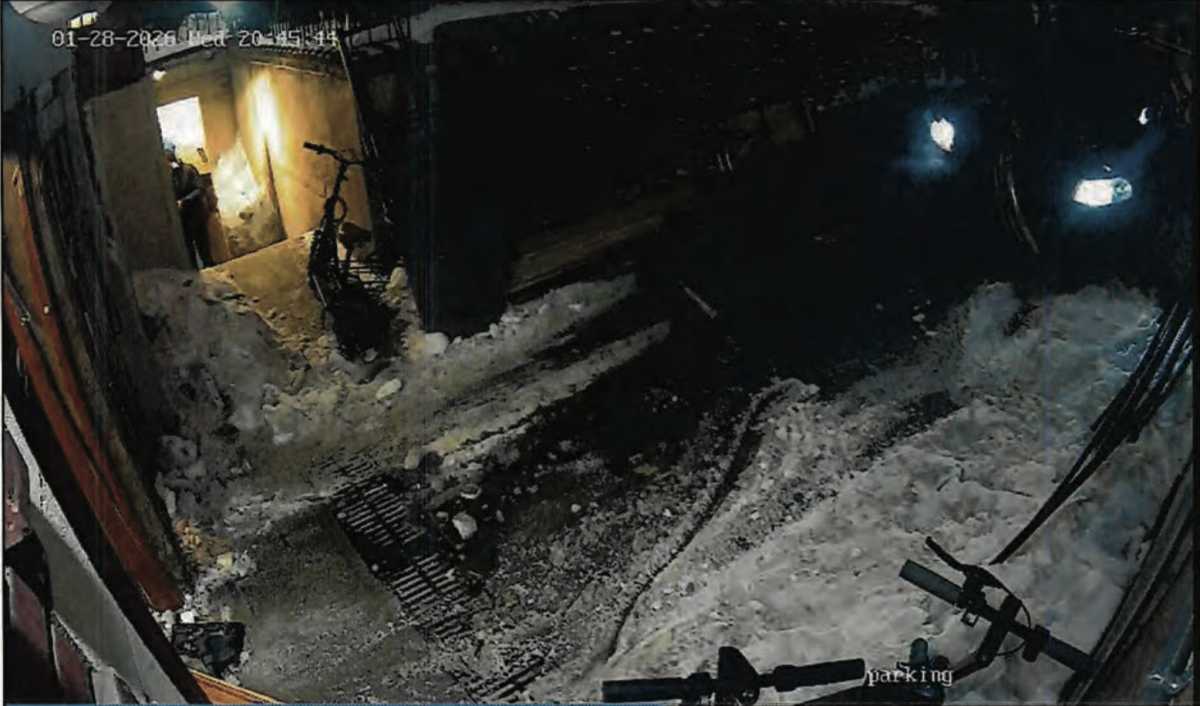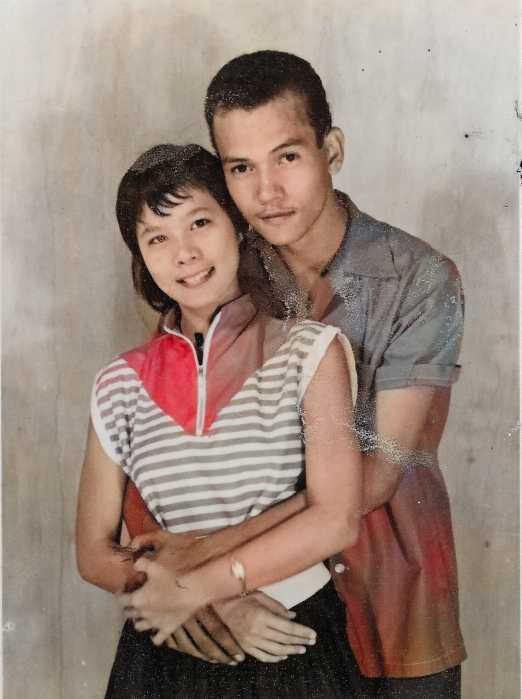Music and the movies have always made a great match. From cinema’s earliest days, when music served as accompaniment to a film, until today, when film scores can make or break a “talkie,” the two art forms belong together.
And don’t think that today’s cinematic music is merely background for current releases. Many musicians are writing music for new experimental films, as well as creating new scores for classics, like Windsor Terrace resident Tom Nazziola.
As one of the founding members of the BQE Project, a chamber ensemble dedicated to performing live accompaniment to contemporary and classic films, Nazziola knows this field well. And he’ll have a chance to show off his musical and cinematic knowledge when the BQE Project (yes, that’s a tribute to the Brooklyn-Queens Expressway) performs the world premiere of his new score for the 1920 landmark silent film, “The Golem” at the Walt Whitman Theatre in Midwood on Sunday.
The film, directed by German actor Paul Wegener, is a classic in both style and story. A wonderful example of German expressionism in cinema, it draws upon Hebrew legend to tell the tale of a rabbi in 16th century Prague who fashions an inanimate creature out of clay to protect his community from persecution.
Nazziola’s score for “The Golem” was commissioned by Brooklyn Center for the Performing Arts at Brooklyn College’s “New Work/New York” initiative.
“[This project] has allowed us to work with a great Brooklyn artist and develop and grow our audience,” BCBC Artistic Director Seth Soloway told GO. “I knew this could be a great performance for our audience that was hungry for classical music, and it allows us to do something new and fresh.”
Nazziola e-spoke with GO Brooklyn about how he came to identify with and be inspired by “The Golem.”
“The idea behind The BQE Project is to create ‘film scoring music,’” explained Nazziola. “I want to bring any and all instances of audio/visual projects to our audiences with an emphasis on creating music that supports a moving image.”
But before the composer even sits down to pen the score, there is the daunting task of choosing an inspiring project.
“I screen countless films until I find something that really resonates with me,” said Nazziola. “This can be a long process. My main emphasis is on finding a film that has a strong feeling and direction behind it. This usually involves a well-told story or the delivery of concrete emotions. I have to enjoy the film itself. If the film is strong, the musical ideas will come.”
Nazziola said he was immediately drawn to “The Golem” and its underdog subject.
“I was impressed with the intensity of the images (especially of the Golem itself),” he said. “I also thought it would be a great platform for creating a different perspective for my compositional style through studying music of other cultures.”
Nazziola spent six months creating the score for “Golem.”
“I felt some kind of deep connection with the storyline. Similar to the 1931 classic ‘Frankenstein,’ the film evokes empathy from the viewer for either the underdog, the oppressed or the persecuted,” he said. “I love films that reveal the plight of a person or group of people and allow us to enter that world and possibly gain a new perspective.
“There is also a strong mystical element involved in [‘The Golem’] which is something that I relate to on a musical and spiritual level.”
Nazziola, who has written music for contemporary films as well as TV, documentaries and animation, is a versatile composer with dreams of scoring for Hollywood.
“I’ve done a few independent films as well as composing new music for early talkies (classic films) such as Mary Shelley’s ‘Frankenstein’ and Josef von Sternberg’s ‘The Blue Angel,’ ” said Nazziola. “These are two films that have dialogue on the soundtrack but no film score; they were created in the early 1930s at a time when composing music for film was at its infancy.
“Since I ultimately desire to work on a current film out of Hollywood, scoring early talkies enables me to practice my hand at underscoring until I can segue into the West Coast scene.”
All of which brings Nazziola and his seven-member ensemble to the world premiere of “The Golem” score for Brooklyn Center for the Performing Arts on March 9.
Conducted by Nazziola, the musicians will play violin, cello, acoustic bass, piano, guitars (electric, nylon and mandolin) and ethnic percussion.
“I mentioned to [BCBC] that ‘The Golem’ was a film I was interested in doing… [They] actually offered to commission me to compose a new score for this film, which is exactly what one needs to get a major project like this in motion. I’ve thought about doing ‘The Golem’ for years and always hoped that there would be an occasion to create a new score for live performance.”
BCBC regulars will remember the BQE Project from its 1998 performance there of its first film score reconstruction — Charlie Chaplin’s “City Lights.”
Said Nazziola, “I guess we’ve come full circle.”

Brooklyn Center for the Performing Arts presents Paul Wegener’s silent film “The Golem,” with live musical accompaniment by the BQE Project, at 2 pm on March 9 at the Walt Whitman Theatre on the Brooklyn College campus (2900 Campus Road at Hillel Place in Midwood). Tickets are $20. For tickets, visit www.BrooklynCenterOnline.org or call (718) 951-4500.


